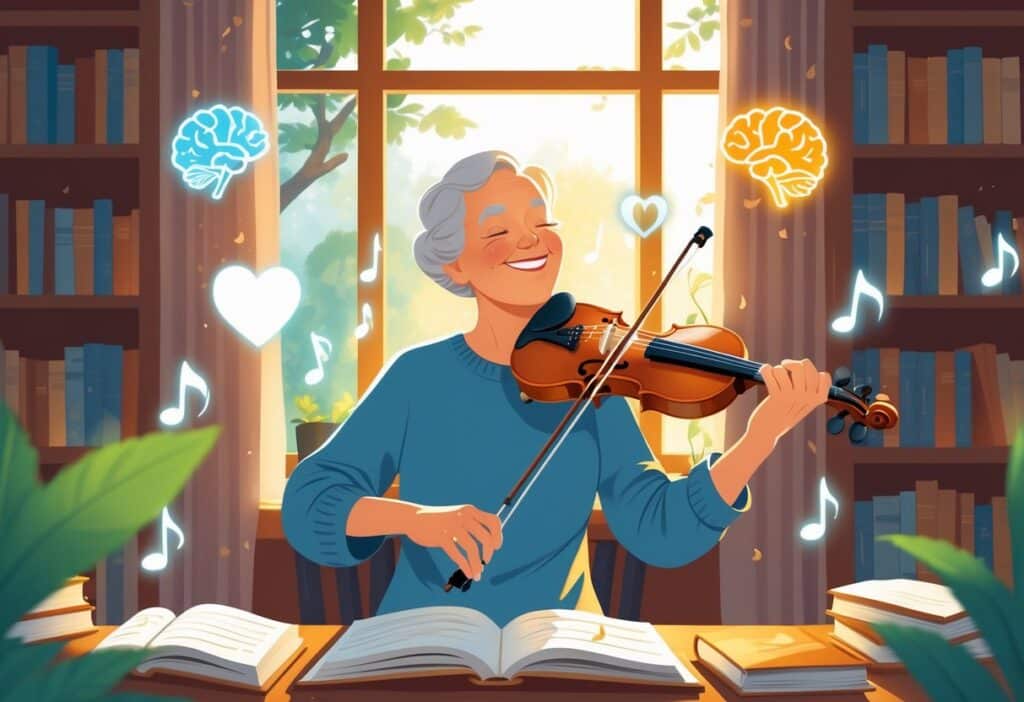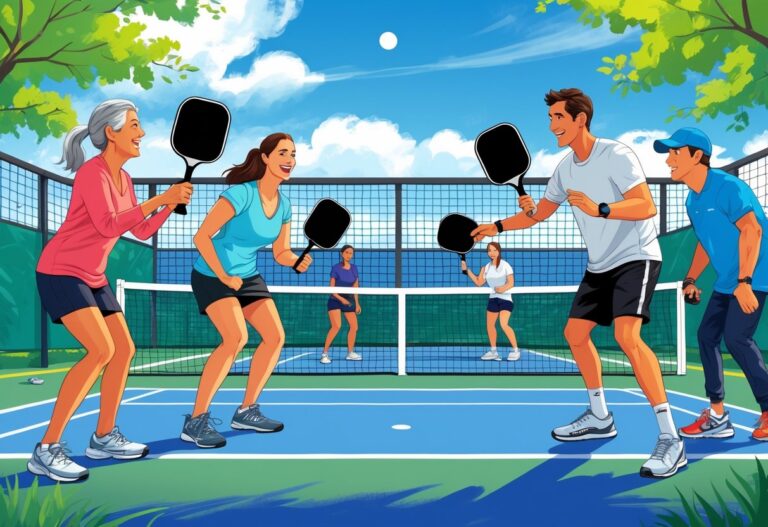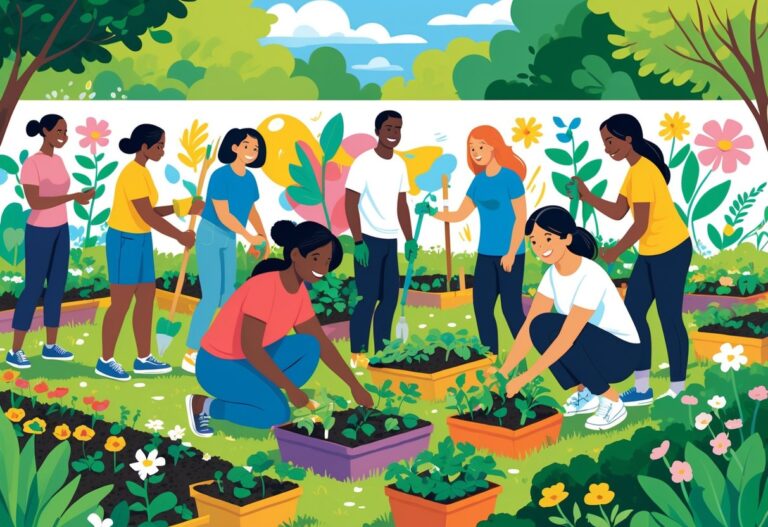A lot of folks think music’s just for kids, but honestly, that’s not true at all. Adults who pick up an instrument later on can see real boosts in memory, brain health, and just plain happiness.
Whether you’re in your 50s, 60s, or way past that, your brain can still make new connections and soak up new skills. It’s never really too late, is it?
The adventure of learning an instrument later in life comes with perks young learners might not notice. You’ve got more patience, life smarts, and maybe a little more cash to spend on good lessons or a nice instrument.
There’s no rush, no school recitals, or anyone telling you what to play. You get to learn at your own speed, just because you want to.
Starting music as an older adult can open up new social circles, keep your mind sharp, and give you that sense of purpose that’s so easy to lose track of. From picking your first instrument to figuring out how to practice, there are ways to make it work for you—no matter what’s been stopping you before.
Key Benefits of Learning a Musical Instrument Later in Life
Adults who jump into musical training later on often see real changes in how their brains work and how they feel day-to-day. Learning an instrument in your later years can help your brain stay healthier, and the benefits go way beyond just playing a few songs.
Cognitive Enhancement and Brain Health
Playing music fires up both sides of your brain. That means you’re building new brain pathways, which makes your mind stronger.
You challenge yourself every time you read notes, move your fingers, and listen to what you’re playing. It’s a lot to juggle, and that’s the point.
Some brain benefits:
- More gray matter in the parts of your brain that process sound
- Better connections between the left and right sides of your brain
- More flexibility in how your brain works
- Sharper thinking over the years
Research keeps showing that adults with a musical background often stay mentally sharper as they age. Older folks who play instruments tend to keep their brains healthier and may even lower their risk of dementia.
Playing music also keeps your hands and eyes working together. That physical part—moving your fingers, reading music—helps your brain stay fit, too.
Emotional Well-Being and Stress Relief
Picking up an instrument can do wonders for stress. There’s something about playing music—it lets you express yourself and shake off the day’s worries.
Every new tune or skill you learn gives you a little confidence boost. Bit by bit, you start to feel more resilient.
Emotional perks:
- Less anxiety and stress
- Better mood control
- More self-confidence
- A sense of real achievement
Repeating practice routines can almost feel meditative. You focus on the music, and those nagging thoughts just fade out for a while.
Music therapy is showing some real promise for lifting spirits and bringing people together. Group lessons or jamming with others can be a great way to meet people.
Music also gives you a way to work through tough emotions. Sometimes it’s just easier to play than to talk.
Memory and Attention Improvements
Learning an instrument really sharpens your memory and focus. Older adults who pick up music often see improvements in attention and thinking.
Reading music demands your full attention. You’ve got to juggle rhythm, pitch, and timing all at once.
Memory boosts:
- Better short-term memory
- Stronger long-term recall
- Quicker at processing what you hear
- Faster at remembering details
Short practice sessions help stretch your attention span. Learning new pieces forces you to focus, which can spill over into other areas of life.
Musical training can even speed up your brain’s processing. Reading music and coordinating your hands is like a workout for your mind.
Adults who play music often remember things better than those who don’t. Memorizing songs and scales isn’t just for show—it really helps your brain hold onto information.
Cognitive and Psychological Advantages

Learning an instrument can noticeably improve how your mind works and how you feel. Musical training builds up your brain’s “reserve” and can give your confidence a real lift.
Delaying Age-Related Cognitive Decline
Music lessons can help your brain stay strong as you age. Every time you practice, you’re building up a sort of shield against the usual effects of getting older.
Studies show that playing an instrument keeps your brain processing faster and your spatial skills sharper, even in later years.
Regular music practice helps your brain regions work together. That extra connectivity can keep you thinking clearly for longer.
Even if you start piano lessons late, you can see big gains. Sometimes, just four months of lessons is enough to notice improvements in memory and mental speed.
Music training sets up backup routes in your brain for processing information. When your main neural pathways start to slow down with age, these new ones step in.
Improving Executive Function and Problem-Solving
Playing an instrument can really boost your memory, focus, and problem-solving. Every practice session flexes your executive function muscles.
Piano lessons, in particular, can help you tune out distractions and focus. One study found that just four months of lessons led to better focus and impulse control in older adults.
Executive function perks:
- Better focus on tricky tasks
- Easier to switch between different activities
- Stronger working memory
- Improved self-control and decision-making
Playing music means you’re reading notes, moving your hands, listening, and keeping time—all at once. That’s a lot for your brain to handle, and it gets better with practice.
All this multitasking strengthens the prefrontal cortex, the part of your brain that helps you plan and organize.
Boosting Confidence and Self-Esteem
Learning an instrument can lift your mood and self-worth. Piano lessons have even been shown to lower depression and boost quality of life for older adults.
Every skill you master is proof you’re still learning and growing. Each finished piece is a little victory.
Music brings people together and helps you feel empowered. Whether you’re practicing solo or playing in a group, you gain confidence.
Psychological benefits:
- Fewer symptoms of depression and anxiety
- A stronger sense of achievement
- More stable moods
- Higher life satisfaction
Music connects you with others who share your interests. That community can help fight off loneliness and give you a support system.
Nailing a tough passage triggers a hit of dopamine, your brain’s natural reward. That good feeling makes you want to keep going.
Choosing the Right Instrument and Learning Method

Your best shot at success? Pick an instrument that feels right for your body and your ears, then find a learning style that actually fits your life.
Selecting an Appropriate Instrument
Physical comfort should be your top priority when choosing an instrument. Think about your hand size, lung power, and any mobility issues.
Some starter-friendly instruments:
- Guitar – easy to carry, and you can play a lot with just a couple chords
- Ukulele – soft strings, only four to worry about, and a gentle sound
- Piano – start with one hand, add more as you go
- Harmonica – doesn’t take much breath, and it’s hard to hit a wrong note
Pick something you actually want to hear. If you love how the sax sounds, don’t settle for something else.
Try out a few instruments before you buy. Most music shops are happy to let you test things out.
Don’t forget to factor in upkeep and space. Pianos need tuning and take up a chunk of your living room. Guitars need new strings now and then.
Evaluating Music Lessons Options
There’s more than one way to learn. Each method suits different personalities and schedules.
Private lessons give you one-on-one help. A good teacher can fix bad habits before they stick. It costs more, but you might progress faster.
Group classes are cheaper and let you play with others. You’ll learn from classmates’ mistakes, though the pace might not be perfect for you.
Online courses are flexible and less expensive. You can replay lessons and practice whenever you want, but you miss out on instant feedback.
YouTube videos are free and great for extra tips, but they’re not really structured enough for most beginners.
A lot of adults mix things up. Maybe start with private lessons, then use online videos or courses for extra practice.
Self-Teaching vs. Professional Guidance
Learning an instrument isn’t one-size-fits-all. You’ve got to figure out what works for you.
Self-teaching perks:
- Learn at your own pace
- Spend less money
- Practice when it fits your life
- Focus on the music you actually like
Professional guidance perks:
- Learn proper technique from the get-go
- Follow a structured plan
- Get feedback right away
- Stay motivated and accountable
Older learners have some unique advantages. You’re doing this for you, not because someone’s making you. Your life experience helps you spot patterns and learn faster.
Most experts say it’s smart to get a few months of lessons at the start. Bad habits can be tough to shake later.
A good teacher will listen to your goals and work with your schedule. Let them know what songs you want to play and how much time you can put in.
Effective Practice Strategies for Older Learners
Adults don’t always learn like kids do. Short, regular practice sessions usually beat marathon ones, and honestly, your experience gives you a leg up in picking up new skills.
Setting Realistic Goals and Expectations
Start small. Aim for 5-10 minutes a day instead of trying to cram in an hour and burning out.
Research backs up that short, daily practice is better. Your mind needs a little time to soak up new things between sessions.
Set a weekly goal—maybe one new chord or a simple melody. Write down what you want to get done. That keeps you motivated and on track.
Sample Weekly Goals:
- Week 1: Learn three basic chords
- Week 2: Practice switching between two chords
- Week 3: Play a simple chord progression
- Week 4: Add a basic rhythm pattern
Give your hands and brain time to build muscle memory. Progress will come in small steps, and that’s perfectly normal.
Starting music later in life still gives your brain a boost. Even if you’re brand new, you’re still gaining all those cognitive benefits.
Building Consistent Practice Routines
Pick a specific time each day for practice. Your brain gets used to routines, so sticking to a schedule helps.
Morning practice usually works well since your mind feels fresh. But honestly, any time that fits your life is better than none.
Keep your instrument visible and easy to grab. If you have to dig it out or set up every time, you’re way less likely to actually play.
Daily Practice Schedule:
- 2 minutes: Warm up with scales or simple exercises
- 5 minutes: Review previous material
- 3 minutes: Learn something new
- Total: 10 minutes max
Try keeping a practice journal. Write down problems, small wins, or just what you worked on.
This makes it easier to spot progress, even on days it feels slow.
If 10 minutes feels like too much, break it down further. Even a 3-5 minute burst counts.
Consistency trumps marathon sessions for building real musical skills.
Set up your space with good lighting and a comfortable chair. Clear away distractions—phones, TV, whatever pulls your focus.
A dedicated spot helps your mind shift into “practice mode” more quickly.
Using Adult Learning Strengths
Adults bring a lot to the table—life experience and sharper analytical skills. Use that to your advantage.
Try connecting new songs to music you already know or love. Memory sticks better when you tie new info to something familiar.
Pick songs that mean something to you. You’ll probably enjoy practice more that way.
Adult Learning Advantages:
- Better focus and attention spans
- Stronger analytical thinking
- More life experience to draw connections
- Greater motivation and self-discipline
Ask questions during lessons. If you don’t get why a technique works, speak up.
Understanding the “why” behind things makes learning stickier for adults.
When you hit a tough section, break it down. Your problem-solving skills are a real asset here.
Use apps, online tutorials, or a digital metronome if they help. You can adjust these tools to fit your learning style.
Adults learning instruments can prevent cognitive decline and enjoy some much-needed stress relief, too.
Overcoming Common Challenges and Myths
Adults run into some specific hurdles when picking up an instrument. A lot of these are physical concerns or just old myths about age and learning.
Addressing Physical and Mental Barriers
Physical changes don’t have to end your musical dreams. Fingers might feel stiff at first, but regular practice helps with flexibility and coordination.
Common Physical Concerns:
- Finger dexterity and strength
- Hand coordination
- Posture and comfort
- Eye strain when reading music
Start with shorter sessions—10 or 15 minutes is fine. It keeps fatigue away and helps build up endurance.
Pick an instrument that feels comfortable for your body. No need to force it.
Mental barriers can be even trickier. Adults worry about being embarrassed when starting out.
That fear’s normal, but it doesn’t have to hold you back.
Strategies for Mental Comfort:
- Practice privately at first
- Set small, doable goals
- Focus on your own progress
- Join a supportive music group or online community
Adults often underestimate their concentration skills. In reality, you might find you can focus longer and catch on to complex ideas faster than kids.
Dispelling Myths About Age and Musical Ability
The myth that adults can’t learn new skills is just that—a myth. Research shows your brain stays flexible throughout life.
Truth vs. Fiction:
| Myth | Reality |
|---|---|
| “I’m too old to start” | Adults learn differently but effectively |
| “Children learn faster” | Adults have better focus and understanding |
| “I missed my chance” | Any age is the right age to begin |
| “My brain is too set” | Adult brains remain flexible and adaptable |
Adults bring unique strengths to music education. You get practice techniques faster, and you can relate musical ideas to your own life.
Your motivation comes from within, not just outside pressure.
Studies on piano lessons for older adults show less depression and better quality of life.
Analytical thinking lets you break down pieces and tackle tough spots with more confidence.
Maintaining Motivation and Perseverance
Learning a musical instrument takes steady effort, but motivation doesn’t have to be a struggle. Set clear, specific goals instead of vague wishes.
Effective Goal Setting:
- Learn one new song each month
- Practice scales for 5 minutes daily
- Play along with a favorite recording
- Perform for friends or family
Choose music you actually like. Playing songs that matter to you makes practice way more fun.
Celebrating small victories keeps you going when progress feels slow.
Record yourself sometimes. It’s a bit awkward at first, but it helps you hear your own improvement.
Motivation Boosters:
- Track your daily practice time
- Reward yourself for sticking with it
- Connect with other adult learners
- Focus on enjoying the process, not perfection
Treat practice like any important appointment. Put it on your calendar and show up for yourself.
Even 15 minutes a day beats an hour once a week.
Find an instructor who gets what it’s like to learn as an adult. The right teacher can make a huge difference.
Social and Lifestyle Benefits of Music Engagement
Learning an instrument opens doors to new friendships and creative outlets. Music isn’t just about notes—it’s about connection, expression, and a little bit of fun.
Socialization and Community Building
Group lessons are a great way to meet people who share your interests. Small group piano classes help older adults bond while learning together.
You’ll become part of a community that understands your ups and downs.
Common social opportunities include:
- Group instrument classes
- Community orchestras
- Music clubs and societies
- Jam sessions and open mics
Learning together makes conversation easy. You can swap tips, share favorite songs, or talk about performance goals.
Many older adults say the ensemble aspect of music keeps them motivated. Playing with others just feels good.
Local groups usually welcome beginners. These communities offer support that goes beyond the lesson room.
Enhancing Quality of Life Through Music
Playing an instrument gives your day some structure and purpose. Regular practice becomes a little oasis of focus and calm.
Music is a solid stress reliever. Focusing on playing can quiet your mind and help you let go of worries, at least for a bit.
Quality of life improvements include:
| Benefit | How Music Helps |
|---|---|
| Daily routine | Regular practice creates structure |
| Mental stimulation | Learning new songs challenges your brain |
| Personal achievement | Mastering pieces builds confidence |
| Creative outlet | Self-expression through music |
Every new song mastered feels like a real win. That confidence can spill over into other parts of life.
Music keeps your mind active. Reading notation, coordinating your hands, and memorizing pieces all sharpen your thinking.
Sometimes, music is the best way to cope with tough emotions. Playing familiar tunes can lift your mood or offer comfort when you need it most.
Sharing Your Musical Journey with Others
Your musical progress is something you can share with family and friends. Informal performances at gatherings spark special moments and, honestly, memories you’ll probably laugh about later.
Recording yourself helps you notice improvement over time. It’s also a nice way to share your music with relatives who live far away or with musician friends online.
Ways to share your music:
- Family gatherings and celebrations
- Nursing home or community center performances
- Online video sharing with friends
- Teaching basic skills to grandchildren
Playing for others, even just a few people, builds your confidence. It’s usually easier to start with family before playing for a bigger crowd.
Sometimes, your musical journey nudges others to try something creative too. Friends or relatives might even ask you for tips after hearing you play.
Teaching simple techniques to younger family members can be a blast. It brings you closer and, honestly, helps you remember what you’ve learned yourself.
The music you play becomes part of your family’s story. People tend to treasure recordings of loved ones playing their favorite songs—there’s something timeless about that.





